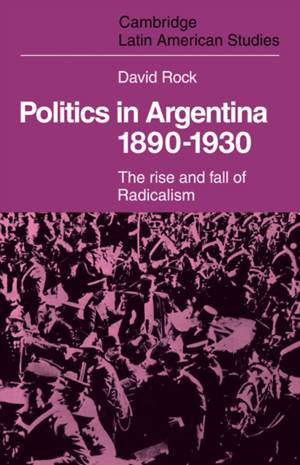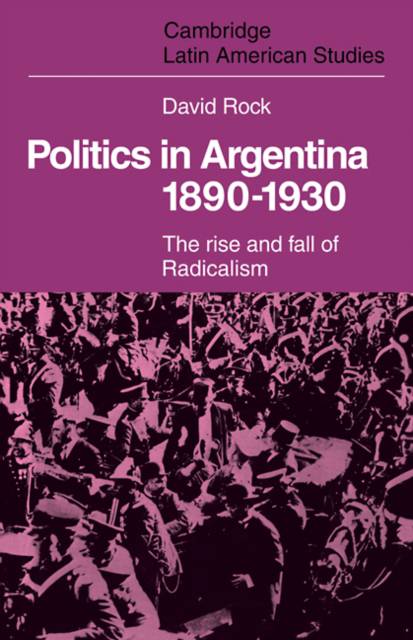
Door een staking bij bpost kan je online bestelling op dit moment iets langer onderweg zijn dan voorzien. Dringend iets nodig? Onze winkels ontvangen jou met open armen!
- Afhalen na 1 uur in een winkel met voorraad
- Gratis thuislevering in België vanaf € 30
- Ruim aanbod met 7 miljoen producten
Door een staking bij bpost kan je online bestelling op dit moment iets langer onderweg zijn dan voorzien. Dringend iets nodig? Onze winkels ontvangen jou met open armen!
- Afhalen na 1 uur in een winkel met voorraad
- Gratis thuislevering in België vanaf € 30
- Ruim aanbod met 7 miljoen producten
Zoeken
Omschrijving
This study is concerned with the forty-year period before 1930, when Argentina experienced rapid economic and social growth broken only by the First World War. The Radical Civic Union appeared in the 1912 elections and in 1916 its leader, Hipolito Yrigoyen, became President. Dr Rock discusses the origins and course of this experiment in representative government, and the distribution of power and political benefits under the new system in the light of the society created by the growth of the primary export economy: how it came about that the established political elite ceded control to the Radicals; whom they represented and towards which groups they directed their attentions. The work also deals with the methods of organization and mobilization used by them in a complex urban environment to develop and uphold their political support. It examines in some detail the class conflicts of the wartime period, the strikes whereby the workers sought to guard against the erosion of their wages by inflation, and the counter-mobilization of elite and middle-class groups, most notably in the bloody 'Tragic Week' of 1919.
Specificaties
Betrokkenen
- Auteur(s):
- Uitgeverij:
Inhoud
- Aantal bladzijden:
- 328
- Taal:
- Engels
- Reeks:
- Reeksnummer:
- nr. 19
Eigenschappen
- Productcode (EAN):
- 9780521102322
- Verschijningsdatum:
- 12/03/2009
- Uitvoering:
- Paperback
- Formaat:
- Trade paperback (VS)
- Afmetingen:
- 140 mm x 216 mm
- Gewicht:
- 417 g

Alleen bij Standaard Boekhandel
+ 121 punten op je klantenkaart van Standaard Boekhandel
Beoordelingen
We publiceren alleen reviews die voldoen aan de voorwaarden voor reviews. Bekijk onze voorwaarden voor reviews.











